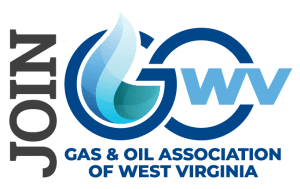WASHINGTON (WV News) — The details of a long-awaited, multi-hundred million dollar economic development project centered in West Virginia have been announced.
The Appalachian Regional Clean Hydrogen Hub, also known as ARCH2, is among the seven regional hydrogen hub projects recently announced by the Biden Administration which will each receive a portion of $7 billion in funding from the Bipartisan Infrastructure Law.
ARCH2 will consist of hydrogen pipelines, multiple hydrogen fueling stations and permanent CO2 storage infrastructure in West Virginia, Ohio and Pennsylvania, according to information from the Biden Administration.
The project’s share of funds is “up to $925 million.”
It is estimated to create about 3,000 permanent jobs, plus more than 18,000 positions during construction.
The $925 million in federal funding is expected to unlock up to $6 billion in additional private sector matching funding, according to West Virginia US Sen. Joe Manchin.
“This means West Virginia will be the new epicenter of hydrogen in the United States of America,” Manchin said. “We won the hub because of the hard work of countless individuals and organizations, and I could not be prouder to be making this announcement today.”
The seven regional hub projects were picked from dozens of projects submitted to the U.S. Department of Energy.
West Virginia Economic Development Secretary Mitch Carmichael described the process during an interview with WV News in September.
“Our application process started out with 47 applications with many states involved. It was whittled down to 36 and we were in that group. Then it was whittled down to 12 and the expectation is that as many eight to nine will be funded,” Carmichael said. “So we feel very good about our opportunities here.”
Sen. Shelley Moore Capito, R-W.Va., who along with Manchin and Gov. Jim Justice is a member of the West Virginia Hydrogen Hub Working Group, called the announcement a “major win for the ARCH2 team and for future economic development and energy production in West Virginia.”
“Since we included language and funding for a hydrogen hub competition in the Infrastructure Investment and Jobs Act, and at every stage since, I consistently supported efforts to help make this project a reality. I’m thrilled for the ARCH2 team, and am so proud West Virginia will continue its tradition as an innovative, energy-producing state through a regional hydrogen hub.”
Charlie Burd, executive director of the Gas and Oil Association of West Virginia, thanked Capito and Manchin for backing the project.
“Securing a hydrogen hub in West Virginia is a clear win for our economy, workforce and environment and we appreciate the leadership from Senators Manchin and Capito who continue to be strong advocates of leveraging West Virginia’s energy resources for the shared benefit of all,” he said.
During the fifth annual Focus Forward energy symposium in Morgantown in April, Arria Hines, prime partner of ARCH 2, said the Hub has the potential to create a new industry in West Virginia.
“It’s multiple facilities — it’s not just one thing, it’s a hub,” she said. “In this hydrogen economy, we’re going to build on the workforce that we currently have that we know are used to working on very safety-conscience, high-risk areas such as coal and natural gas.”
Justice, when asked about the state’s role in ARCH2, said “it’s complicated.”
“It’s complicated — it’s really complicated,” Justice said Friday during an administration briefing. “But the state helped coordinate many different participants that are public and private both.”
He doesn’t think the state government will directly receive any of the “up to $925 million” the project will receive, Justice said.
“I would have to defer to our people and everything in regard to that,” he said. “I don’t think the state directly receives funds. It is a coordination that we, along with all the partners, whether it be federal or whomever it may be and private, we absolutely have coordinated the effort.”
Putting together the application to the Department of Energy was a “monumental feat,” Justice said.
“And our folks did that, along with many others and along with a lot of help and everything,” he said.
ARCH2 is a partnership in “some ways” with Ohio and Pennsylvania, Justice said.
“I guess at the end of the day, we surely want to get our fair share,” he said.
It could be some time before the dollars start flowing, Justice said.
“We’ve got a lot of real possibilities here, but I think it’s way, way, way, way, way too far in its infancy to start spending money today,” he said.
Battelle, a Columbus, Ohio-based applied science and technology development company, will be the “overall program manager and prime recipient of ARCH2 funding,” according to a press release.
“We’re thrilled the DOE chose the ARCH2 team to advance this vital path toward a clean energy future,” said Lou Von Thaer, Battelle president and CEO. “We intend to lead this public-private partnership with vigor and excellence meeting government and industry objectives, addressing technical, commercial, and social justice goals, including proving hydrogen’s economic viability, in a highly transparent manner.”
Other “key project development partners” include: Air Liquide, the Chemours Company, CNX Resources Corp, Dominion Energy Ohio, Empire Diversified Energy, EQT Corporation, Fidelis New Energy, First Mode, Hog Lick Aggregates, Hope Gas Inc., Independence Hydrogen Inc., KeyState Energy, MPLX, Plug Power, and TC Energy.
Battelle, in collaboration with the West Virginia University Innovation Corporation, plans to establish the ARCH2 Program Office on the WVU campus in Morgantown.
Negotiations with the DOE and the Office of Clean Energy Demonstrations on the ARCH2 award are expected to commence in early November, according to Battelle.
Although state leaders and officials praised the project and its economic potential, a coalition of 32 environmental groups released a statement saying they see the Hub as “yet another false promise to Appalachian workers and families.”
“Climate change is real, but we should be investing in the cleanest, safest, fastest and cheapest energy sources first, not wasting money on uncompetitive energy projects” said James Kotcon, chair of the West Virginia Chapter of Sierra Club. “Bailing out fossil fuel companies with a hydrogen hub will only benefit the big investors that continue to ignore scientific and economic realities.”

